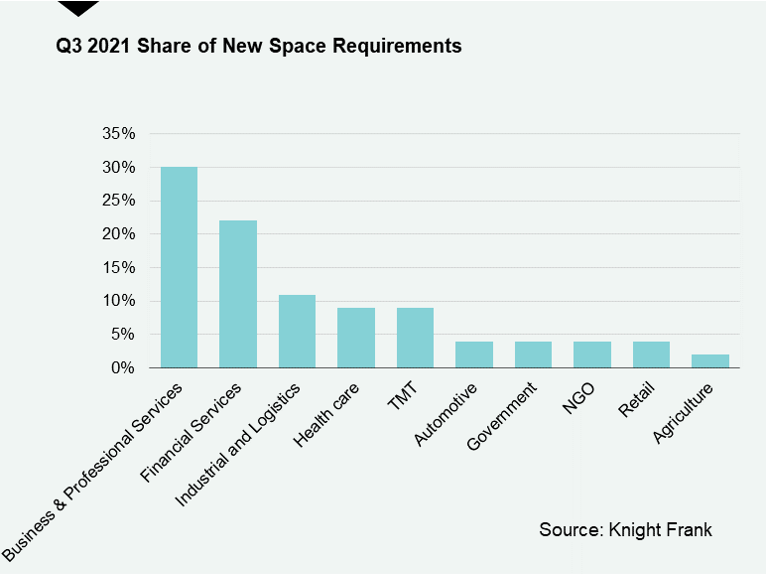War for talent fuelling new office space demand in Africa’s cities
New office space demand at highest since pandemic as sectors battle to attract the best and brightest with high quality office space.
2 minutes to read
As professional, financial and tech sectors expand their African footprint, attracting and retaining the best talent remains key. Indeed, of the 297,000 sqft of new requirements registered in the third quarter of the year (Q3), the professional services sector accounted for the lion’s share (30%) with financial services following closely at 22%.

Tilda Mwai, senior analyst for Africa, explained: “The issue of the war for talent is already hitting the global headlines and this is something we feel will have a significant impact on occupier behaviour in Africa as well. The space businesses occupy now sends a strong signal to potential employees about the culture of a business and the importance it places on the wellbeing of its staff which is why occupiers are actively seeking buildings that offer more than just space. This is fuelling the flight to quality trend, driving a greater divergence in the performance of Grade A and Grade B office rents.
Indeed, Grade B – poorer quality offices – are likely to face rising voids and even potential obsolescence as businesses begin to encourage staff back into offices and focus on the very best office buildings.”
Tech sector driving demand
The growing tech sector, in particular, remains a core piece of the demand equation. Indeed, key markets such as Nigeria, Kenya, South Africa and Egypt have recorded increased tech activity against the backdrop of market entry by tech giants such as Microsoft and Amazon. For instance, the number of fintech start-ups in Nigeria grew by 43% year-on-year in the first half of 2021, making Nigeria the second largest fintech market on the continent after South Africa. This suggests that not only is new office space demand being created, but it is set to remain strong. The supply pipeline of Grade A stock meanwhile, remains weak, hinting at a continued period of rent increases.
Prime rent rankings
Overall, across the 29 cities tracked by Knight Frank’s composite index, prime rents remain stable in majority of the cities (75%) buoyed by improving economic conditions in these cities. Nairobi has emerged as the best performer, recording a 9% increase in prime rents during the period under review. This was closely followed by Kampala (7%) and Dakar (4%). Lagos remains the most expensive city at USD $62.5 psm and Harare the least expensive at USD $7 psm.
Download full report